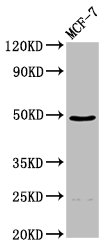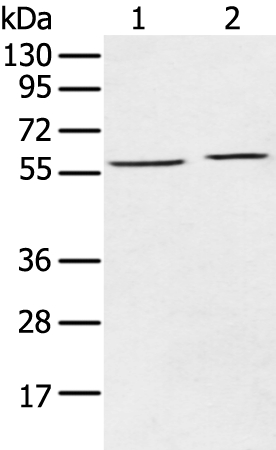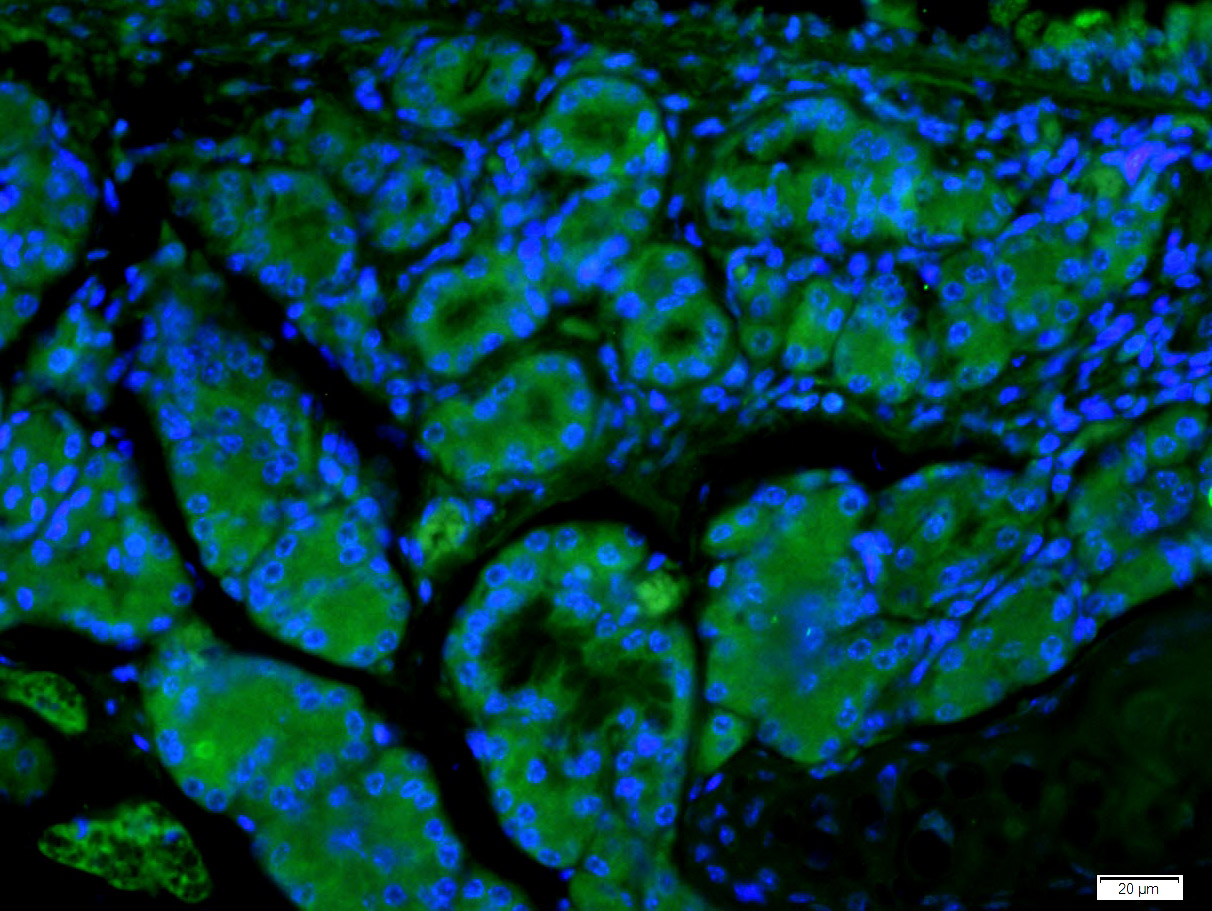![IHC-P analysis of human colon carcinoma tissue using GTX34684 ECM1 antibody [ECM1/792]. IHC-P analysis of human colon carcinoma tissue using GTX34684 ECM1 antibody [ECM1/792].](https://www.genetex.com/upload/website/prouct_img/normal/GTX34684/GTX34684_20200115_IHC-P_474_w_23060801_591.webp)
IHC-P analysis of human colon carcinoma tissue using GTX34684 ECM1 antibody [ECM1/792].
ECM1 antibody [ECM1/792]
GTX34684
ApplicationsFlow Cytometry, ImmunoFluorescence, ImmunoCytoChemistry, ImmunoHistoChemistry, ImmunoHistoChemistry Paraffin
Product group Antibodies
ReactivityHuman, Rat
TargetECM1
Overview
- SupplierGeneTex
- Product NameECM1 antibody [ECM1/792]
- Delivery Days Customer9
- Application Supplier NoteICC/IF: 1-2microg/ml. IHC-P: 0.5-1microg/ml for 30 minutes at RT. FCM: 0.5-1microg/106 cells. *Optimal dilutions/concentrations should be determined by the researcher.Not tested in other applications.
- ApplicationsFlow Cytometry, ImmunoFluorescence, ImmunoCytoChemistry, ImmunoHistoChemistry, ImmunoHistoChemistry Paraffin
- CertificationResearch Use Only
- ClonalityMonoclonal
- Clone IDECM1/792
- Concentration0.2 mg/ml
- ConjugateUnconjugated
- Gene ID1893
- Target nameECM1
- Target descriptionextracellular matrix protein 1
- Target synonymsURBWD, extracellular matrix protein 1, secretory component p85, testicular tissue protein Li 61
- HostMouse
- IsotypeIgG1
- Protein IDQ16610
- Protein NameExtracellular matrix protein 1
- Scientific DescriptionThis gene encodes a soluble protein that is involved in endochondral bone formation, angiogenesis, and tumor biology. It also interacts with a variety of extracellular and structural proteins, contributing to the maintenance of skin integrity and homeostasis. Mutations in this gene are associated with lipoid proteinosis disorder (also known as hyalinosis cutis et mucosae or Urbach-Wiethe disease) that is characterized by generalized thickening of skin, mucosae and certain viscera. Alternatively spliced transcript variants encoding distinct isoforms have been described for this gene. [provided by RefSeq, Feb 2011]
- ReactivityHuman, Rat
- Storage Instruction-20°C or -80°C,2°C to 8°C
- UNSPSC41116161






![IHC-P analysis of human colon carcinoma tissue using GTX34683 ECM1 antibody [SPM217].](https://www.genetex.com/upload/website/prouct_img/normal/GTX34683/GTX34683_20200115_IHC-P_501_w_23060801_752.webp)

